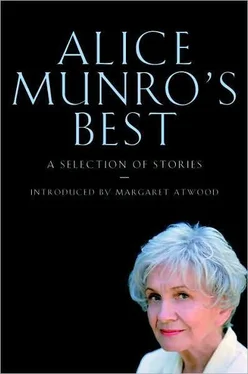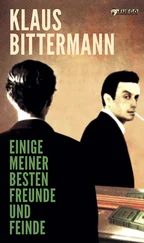The dark ceiling was filling with stars. They came out not all at once but one after another, the way the stars really do come out at night, though more quickly. The Milky Way appeared, was moving closer; stars swam into brilliance and kept on going, disappearing beyond the edges of the sky-screen or behind my head. While the flow of light continued, the voice presented the stunning facts. A few light-years away, it announced, the sun appears as a bright star, and the planets are not visible. A few dozen light-years away, the sun is not visible, either, to the naked eye. And that distance — a few dozen light-years — is only about a thousandth part of the distance from the sun to the center of our galaxy, one galaxy, which itself contains about two hundred billion suns. And is, in turn, one of millions, perhaps billions, of galaxies. Innumerable repetitions, innumerable variations. All this rolled past my head too, like balls of lightning.
Now realism was abandoned, for familiar artifice. A model of the solar system was spinning away in its elegant style. A bright bug took off from the earth, heading for Jupiter. I set my dodging and shrinking mind sternly to recording facts. The mass of Jupiter two and a half times that of all the other planets put together. The Great Red Spot. The thirteen moons. Past Jupiter, a glance at the eccentric orbit of Pluto, the icy rings of Saturn. Back to Earth and moving in to hot and dazzling Venus. Atmospheric pressure ninety times ours. Moonless Mercury rotating three times while circling the sun twice; an odd arrangement, not as satisfying as what they used to tell us — that it rotated once as it circled the sun. No perpetual darkness after all. Why did they give out such confident information, only to announce later that it was quite wrong? Finally, the picture already familiar from magazines: the red soil of Mars, the blooming pink sky.
When the show was over I sat in my seat while the children clambered across me, making no comments on anything they had just seen or heard. They were pestering their keepers for eatables and further entertainments. An effort had been made to get their attention, to take it away from canned pop and potato chips and fix it on various knowns and unknowns and horrible immensities, and it seemed to have failed. A good thing too, I thought. Children have a natural immunity, most of them, and it shouldn’t be tampered with. As for the adults who would deplore it, the ones who promoted this show, weren’t they immune themselves to the extent that they could put in the echo-chamber effects, the music, the churchlike solemnity, simulating the awe that they supposed they ought to feel? Awe — what was that supposed to be? A fit of the shivers when you looked out the window? Once you know what it was, you wouldn’t be courting it.
Two men came with brooms to sweep up the debris the audience had left behind. They told me that the next show would start in forty minutes. In the meantime, I had to get out.
“I WENT TO THE show at the planetarium,” I said to my father. “It was very exciting — about the solar system.” I thought what a silly word I had used: exciting. “It’s like a slightly phony temple,” I added.
He was already talking. “I remember when they found Pluto. Right where they thought it had to be. Mercury, Venus, Earth, Mars,” he recited. “Jupiter, Saturn, Nept — no, Uranus, Neptune, Pluto. Is that right?”
“Yes,” I said. I was just as glad he hadn’t heard what I said about the phony temple. I had meant that to be truthful, but it sounded slick and superior. “Tell me the moons of Jupiter.”
“Well, I don’t know the new ones. There’s a bunch of new ones, isn’t there?”
“Two. But they’re not new.”
“New to us,” said my father. “You’ve turned pretty cheeky now I’m going under the knife.”
“‘Under the knife.’ What an expression.”
He was not in bed tonight, his last night. He had been detached from his apparatus, and was sitting in a chair by the window. He was bare-legged, wearing a hospital dressing gown, but he did not look self-conscious or out of place. He looked thoughtful but good-humored, an affable host.
“You haven’t even named the old ones,” I said.
“Give me time. Galileo named them. Io.”
“That’s a start.”
“The moons of Jupiter were the first heavenly bodies discovered with the telescope.” He said this gravely, as if he could see the sentence in an old book. “It wasn’t Galileo named them, either; it was some German. Io, Europa, Ganymede, Callisto. There you are.”
“Yes.”
“Io and Europa, they were girlfriends of Jupiter’s, weren’t they? Ganymede was a boy. A shepherd? I don’t know who Callisto was.”
“I think she was a girlfriend too,” I said. “Jupiter’s wife — Jove’s wife — changed her into a bear and stuck her up in the sky. Great Bear and Little Bear. Little Bear was her baby.”
The loudspeaker said that it was time for visitors to go.
“I’ll see you when you come out of the anesthetic,” I said.
“Yes.”
When I was at the door, he called to me, “Ganymede wasn’t any shepherd. He was Jove’s cupbearer.”
WHEN I LEFT THE planetarium that afternoon, I had walked through the museum to the Chinese garden. I saw the stone camels again, the warriors, the tomb. I sat on a bench looking toward Bloor Street. Through the evergreen bushes and the high grilled iron fence I watched people going by in the late-afternoon sunlight. The planetarium show had done what I wanted it to after all — calmed me down, drained me.I saw a girl who reminded me of Nichola. She wore a trenchcoat and carried a bag of groceries. She was shorter than Nichola — not really much like her at all — but I thought that I might see Nichola. She would be walking along some street maybe not far from here — burdened, preoccupied, alone. She was one of the grown-up people in the world now, one of the shoppers going home.
If I did see her, I might just sit and watch, I decided. I felt like one of those people who have floated up to the ceiling, enjoying a brief death. A relief, while it lasts. My father had chosen and Nichola had chosen. Someday, probably soon, I would hear from her, but it came to the same thing.
I meant to get up and go over to the tomb, to look at the relief carvings, the stone pictures, that go all the way around it. I always mean to look at them and I never do. Not this time, either. It was getting cold out, so I went inside to have coffee and something to eat before I went back to the hospital.
I GOT A CALL at work, and it was my father. This was not long after I was divorced and started in the real-estate office. Both of my boys were in school. It was a hot enough day in September.
My father was so polite, even in the family. He took time to ask me how I was. Country manners. Even if somebody phones up to tell you your house is burning down, they ask first how you are.
“I’m fine,” I said. “How are you?”
“Not so good, I guess,” said my father, in his old way — apologetic but self-respecting. “I think your mother’s gone.”
I knew that gone meant dead. I knew that. But for a second or so I saw my mother in her black straw hat setting off down the lane. The word gone seemed full of nothing but a deep relief and even an excitement — the excitement you feel when a door closes and your house sinks back to normal and you let yourself loose into all the free space around you. That was in my father’s voice too — behind the apology, a queer sound like a gulped breath. But my mother hadn’t been a burden — she hadn’t been sick a day — and far from feeling relieved at her death, my father took it hard. He never got used to living alone, he said. He went into the Netterfield County Home quite willingly.
Читать дальше












